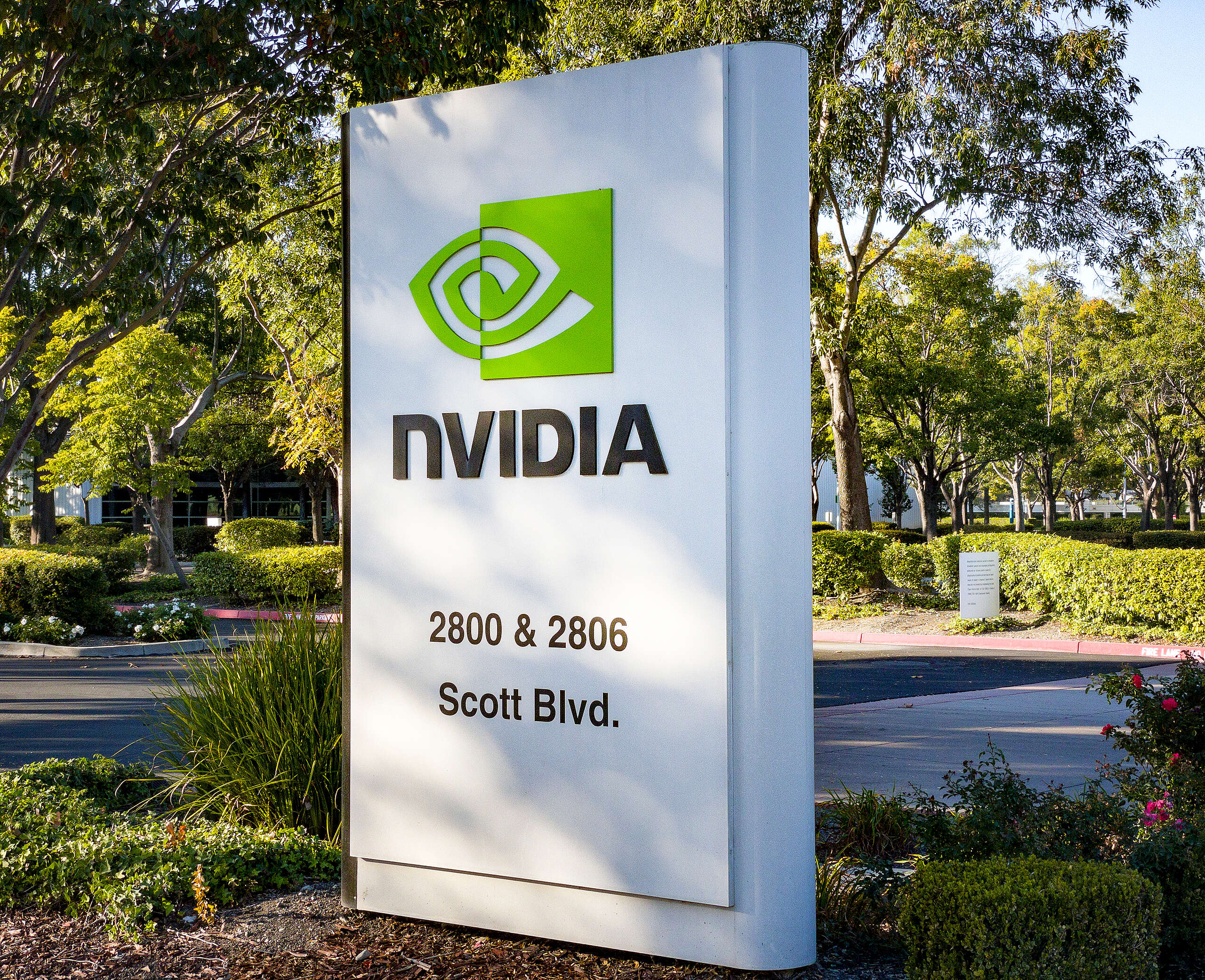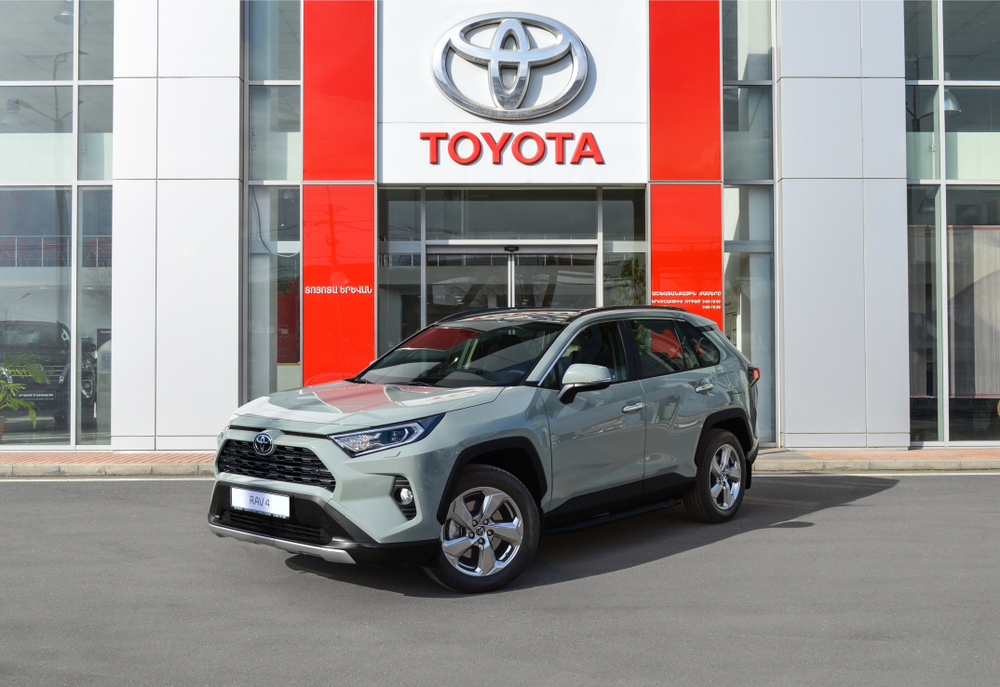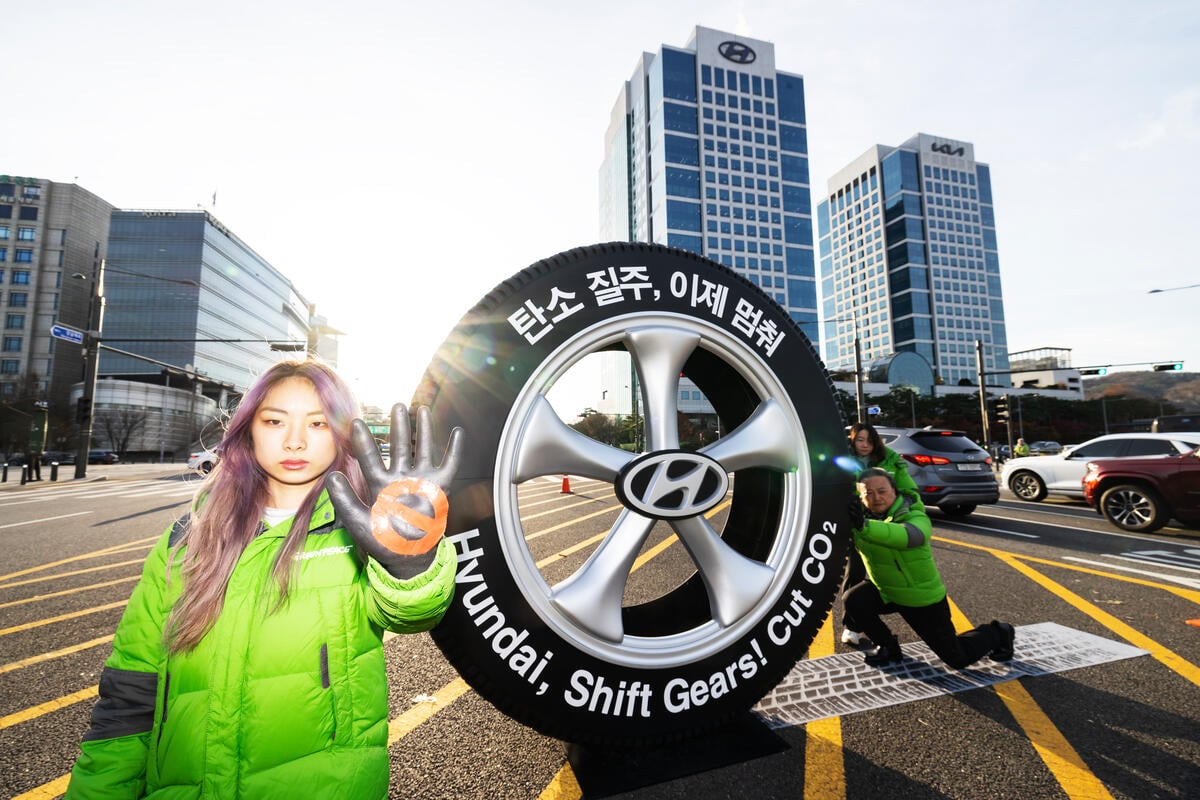HONG KONG – Nvidia, the world’s first US$4 trillion firm and a leader in AI chip design, is falling significantly behind other AI giants in cutting emissions and transitioning to renewable energy, especially across its AI hardware manufacturing supply chain, according to a new report released by Greenpeace East Asia.
“Supply Change: Tracking AI Giants’ Decarbonization Progress,” evaluates the decarbonization progress of the world’s 10 largest AI companies [1] — including global technology and cloud computing giants such as Amazon, Apple, Google, Microsoft, and Meta, plus leaders in semiconductor design, namely AMD, Broadcom, Intel, Nvidia, and Qualcomm. It found that most industry leaders have made slow progress — particularly in tackling supply chain emissions, which can account for as much as 98% of total emissions for certain companies.
Katrin Wu, Greenpeace East Asia Supply Chain Project Lead, said:
“Companies like Nvidia, which ride the AI wave, have gained billions of dollars in revenue and become some of the richest companies in the world. They claim their innovative products can save the world from climate crises. However, the innovation is built on dumping supply chain emissions on other parts of the world, especially in East Asia, which faces its own challenges in energy transition and is extremely vulnerable to climate change.”
Findings reveal that few of the ranked companies have set ambitious supply chain renewable energy targets and concrete actions to transition to renewable energy across supply chains, posing a significant challenge to the global decarbonization progress. In addition, while many ranked companies are based in the United States, most AI hardware manufacturing – an energy-intensive process – is highly concentrated in East Asia. This is particularly alarming given that fossil fuels still dominate in the region. With East Asia producing approximately 75% of global semiconductors and nearly 60% of the world’s electronics, the weak supply chain decarbonization strategies of the companies also exacerbate climate inequity in the region.
The report is the first in-depth assessment [2] of supply chain decarbonization in the context of the ongoing global AI boom, which has fueled enormous energy demands and raised urgent environmental concerns. It is a follow-up to Greenpeace East Asia’s groundbreaking analysis released in April, which examined global electricity consumption and emissions related to AI semiconductor manufacturing.
Key Findings:
- The world’s leading AI companies are falling short in their efforts to decarbonize their supply chains, which represent over 80% of the total emissions for Nvidia, Qualcomm, and Broadcom, and as much as 98% for AMD in 2024. AI chip giants Nvidia and Broadcom rank at the bottom in supply chain decarbonization, primarily due to inadequate climate commitments, especially for supply chains, poor supply chain transparency, and insufficient actions to reduce emissions in their upstream manufacturing. While Apple achieved the highest rank with a B+ grade overall, six of the 10 assessed companies received an F, highlighting the significant gaps AI firms must close to improve their sustainability performance.
- All the studied companies, except Apple, have not committed to transitioning to 100% renewable energy across both their operations and supply chains by 2030. Chip design firms lag the furthest behind: Nvidia has not set any renewable energy targets for its supply chain, while Qualcomm and Broadcom have yet to establish targets for either their operations or supply chains. In addition, Nvidia, Broadcom, and AMD have not committed to net-zero or carbon-neutral targets for either their operations or supply chains.
- Nine out of the 10 companies assessed, including Microsoft, Google, and Nvidia, received the lowest ranking of F for their supply chain transparency due to a lack of comprehensive disclosure of the supply chain’s electricity consumption and suppliers’ renewable energy usage. Apple ranks at the top with regard to transparency in its own operations and within its supply chain.
- The supply chain emissions of AMD, Qualcomm, Nvidia, and Broadcom accounted for more than 80% of these companies’ total emissions in 2024. Most alarmingly, Nvidia nearly doubled its Scope 3 emissions, skyrocketing from 3,514,763 metric tons of CO2e in 2022 to 6,912,577 metric tons in 2024, yet the company has not initiated any investments to enhance renewable energy sourcing among its suppliers.
- While many AI giants publicly advocate for renewable energy development, some — including Google, Microsoft, and Nvidia — are also promoting nuclear expansion, a false solution to meeting their energy demands amid the climate crisis. Nvidia and Broadcom have shown no evidence of direct advocacy for renewable energy policies. Furthermore, Nvidia is the only assessed company that has yet to launch any initiative to directly engage its suppliers in accelerating decarbonization and renewable energy procurement, in addition to adopting climate targets.
Greenpeace East Asia calls on AI giants to commit to transitioning to 100% renewable energy across their supply chains by 2030. To enhance accountability and prevent greenwashing, companies must improve transparency in their supply chain decarbonization efforts. High-impact procurement mechanisms, such as power purchase agreements [3] and investments in new renewable energy projects, are essential for effectively sourcing renewable electricity. Additionally, AI firms are urged to proactively and directly support suppliers in capacity building to expand high-impact renewable electricity procurement, and actively engage with policymakers to advocate for initiatives that promote the scaling up of renewable energy.
“East Asia plays a crucial role in enabling global AI players to succeed in AI competition. Companies like Nvidia, AMD, and others must take urgent actions to reduce their supply chain emissions by targeting the use of renewable energy resources to power their entire supply chain. This goal is ambitious but not unattainable. It can start with increasing investments in renewable energy resources in the region. If Apple can set the benchmark and invest in renewable energy in East Asia, other AI companies can surely do the same,” said Wu.
Figure 1. Ranking of 10 AI giants’ overall decarbonization progress
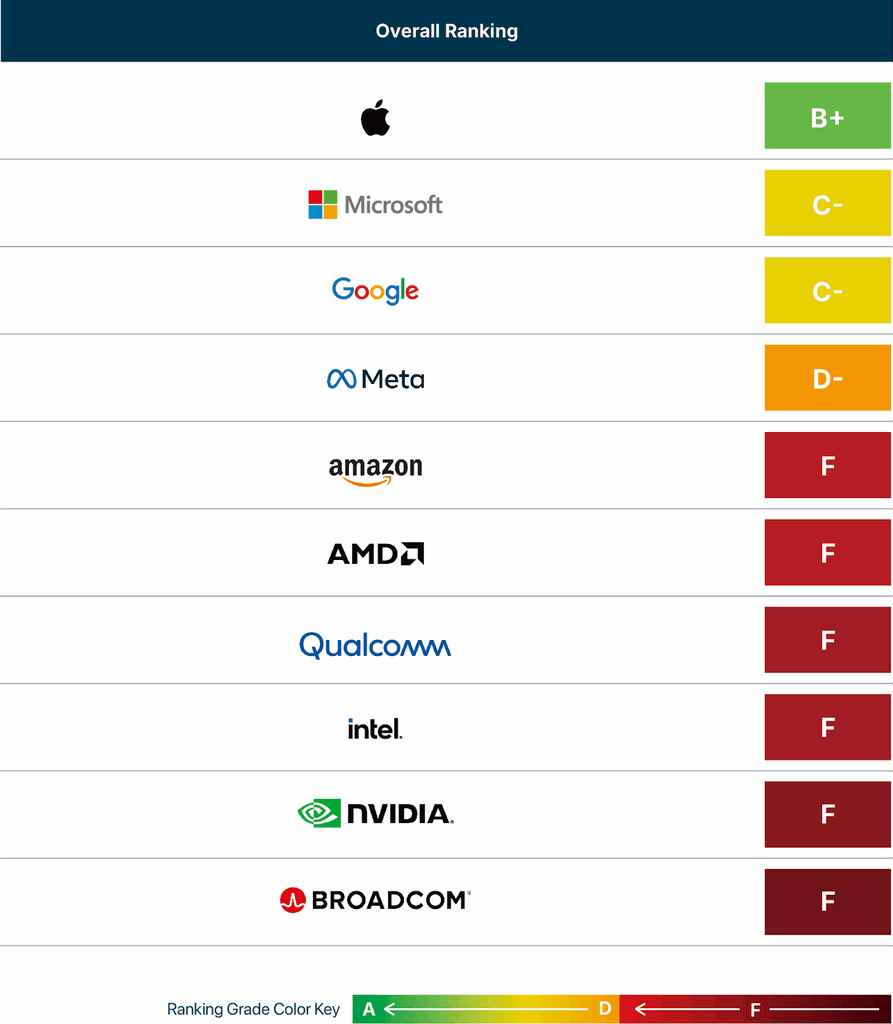
Figure 2. Supply chain decarbonization ranking of 10 AI giants
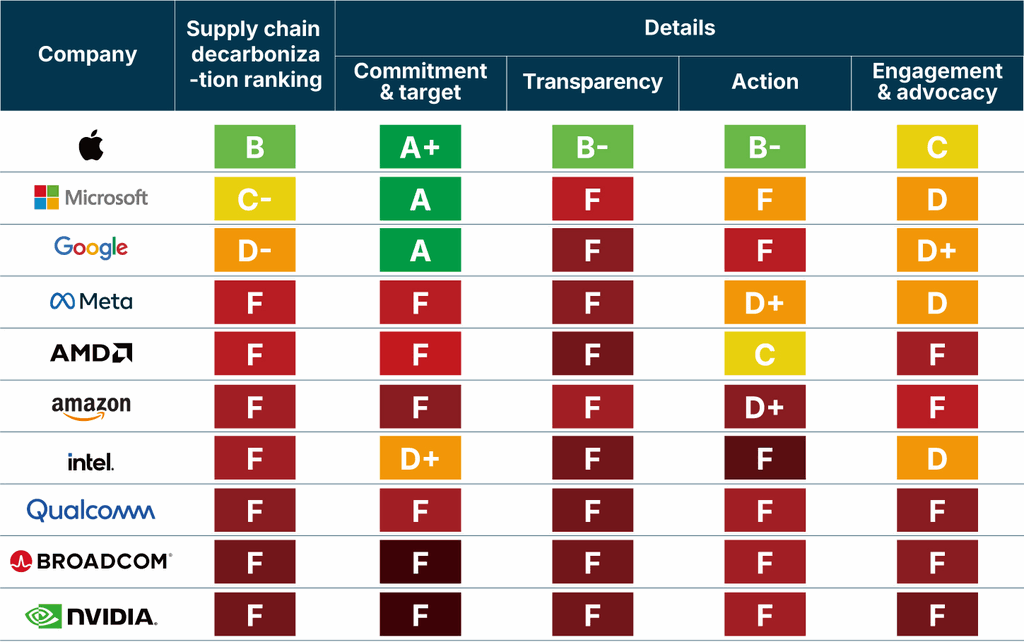
END
Notes:
The full report, Supply Change: Tracking AI Giants’ Decarbonization Progress, is available here.
[1] The 10 companies in the ranking were selected based on their market capitalization as of July 2025.
[2] The report applies a four-pillar framework—Commitment, Transparency, Action, and Engagement and Advocacy—to assess the decarbonization performance of each firm’s operation and supply chain. The ranking is based on data from the companies’ sustainability reports for fiscal year 2024, supporting documentation available on company websites, and their responses to the Carbon Disclosure Project Corporate Questionnaire submitted during the 2024 disclosure cycle. Nvidia data corresponds to their fiscal year 2025, covering the period from January 29, 2024, to January 26, 2025. In addition, the assessed companies were contacted for data verification purposes, and their feedback was incorporated into the final ranking where applicable.
[3] A power purchase agreement (PPA) is a contract between an electricity generator and the party that is purchasing the power, which incorporates the commercial terms for the sale and purchase of electricity for a project.
Media Contact
Yujie Xue, International Communications Officer, Greenpeace East Asia (Hong Kong), +852 5127 3416, [email protected]

